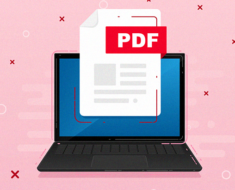
Vaisala
The need for data consistency and accuracy exists across industries and all types of businesses. Not ensuring this may cause some disturbances and substantial complications in business decision making. In the current era of data-oriented operations, a vast amount of data is getting generated, stored, and processed every day. Any random data cannot serve the purpose, but it is important to ensure the integration of gathered and stored information. Comprehending data integrity and knowing how to work at the implementation level is essential to retain the data quality and keep it secured.
Here in this excerpt about data integrity, we will discuss what data integrity is, the different types of integrity, and what factors affect the same. The objective of this article is to remove the confusion in terms of maintaining data integrity. Let us kickstart by defining what data integrity is.
What is ‘Data Integrity?’
The definition of data integrity covers the maintenance, accuracy, assurance, and consistency of data gathered over the entire lifecycle of enterprise data management. The end-to-end lifecycle of data includes the stages of database design, implementation, and usage. In theory, data integrity refers to the completeness, accuracy, and reliability of enterprise data. This is also specified by the lack of any variation between two consecutive instances of update of any record by ensuring that your info is error-free. Integrity also corresponds to data security about the local and international data-related regulatory compliance.
At the baseline, data integrity is ensured with an array of error-checks and validations. It is achieved by ensuring that all the rules and principles related to data management are well delineated during the phase of designing the data flow. All these checks and correction procedures are primarily based on the predefined set of rules.
The relevance of data integrity is very evident while you are trying to establish relationships between various data elements. It makes sure that data transfer from one stage to another is completely error-free. In this way, while the information is being written onto a database, its trustworthiness is implied.
Difference between Data Integrity, Data Quality, and Data Security
Users often get confused with data integrity, data security, and data quality. Even though these are related, three are fundamentally different concepts.
- Data security refers to the measures for the protection of enterprise data to avoid any misuse. It consists of various techniques and strategies that will help make your data inaccessible to the intruders and make the data accessible to just the desired users. Security breaches may threaten the existence of the business itself, as we have seen in many recent data breach cases.
- On the other hand, data quality is to ensure that the stored data is compliant with the organization’s requirements and standards. While ensuring this, it applies to a standard set of rules on the given dataset and stores it in the target database.
- Above all these, data integrity ensures your data’s completeness and accuracy, which is being put into and maintained in the database.
The goal of data security is to safeguard the data from any internal or external data breaches. So, it can be counted as one of the various major aspects of data integrity. Still, it not extensive to account for all the numerous procedures involved in keeping the business info unaffected over time. Similarly, data quality is also another major aspect of data integrity.
Bringing all these under one umbrella, data integrity tends to cover all the various aspects of data quality. It goes a step ahead by executing various procedures and rules that oversee information gathering, entry, deposition, transmission, processing, and more. You can take the assistance of providers like RemoteDBA.com if you are planning to set up your data integrity rules with an expert’s assistance.
Data integrity types
Data integrity, which applies to various database models, is categorized basically into two types:
1. Physical data integrity
Physical data integrity will help us protect data against external factors like natural disasters, power outages, hackers, data theft, etc. All such things fall under the data integrity domain. However, there are many other human faults, storage attrition, and many other such problems also may make it difficult for the data operators to gain reliable information from the DB>
2. Logical Integrity
Logical integrity is all about the rationality of data within a relational database. The constraints of logical integrity can be further categorized into four different types.
- Entity integrity
This depends on the primary keys or the exclusive values, which further classify the data items. The purpose here is to ensure that the data is not recorded multiple times to form duplication and also that the table contains no null fields. This is a crucial feature in relational databases storing data in tabular form, which can be further interconnected in various ways.
- Referential integrity
Referential integrity denotes a set of procedures that ensure a consistent range of data storage and usage. Referential integrity will further ensure that only the needed additions, alternations, and removals are happening through the rules implement into the database structure based on how the foreign keys are used.
- Domain integrity
It is an assortment of procedures that help ensure every data item’s precision, which is maintained in the given domain. Here, the domain is defined with a set of suitable values that a column can enclose. Domain integrity consists of rules and processes which restrict the type, format, and volume of data recorded in the database. It also ensures that each column in the relational database is a well-defined domain.
- User-defined integrity
User-defined integrity covers various rules which are defined by the operators to meet specific requirements. At times, the entity, domain, and referential integrities are not enough to secure data. From time to time, business rules must be re-considered and further integrated into data integrity processes to meet enterprise standards.
Why is it important to ensure data integrity?
Data integrity is an essential constituent when it comes to data integration. If proper data integrity is maintained, then the data values stored in the database remain consistent with the data model. Say, for example, to preserve data integrity, the numeric cells or columns should not include any textual info. To ensure data completeness, its features like the business rules, definitions, dates, and lineage also need to be accurate.
Data integrity will also help assure that the data stored in a database can be linked to other data sets. It will further guarantee that the entire data sets can be searched easily when needed. This will help stabilize the data and also ensure optimum database performance. It can also ensure the reusability of the maintenance of datasets is made easy.









































